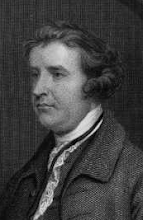Senate conservatives proudly call themselves “Reagan Republicans” because of Reagan’s “Peace Through Strength” military policies. But in Leon Panetta, whose nomination comes up for a full Senate vote for Secretary of Defense on Tuesday, they are being asked to endorse a man whose Congressional career was dedicated to fighting Reagan’s defense build-up and anti-communist policies. That is why the unanimous vote in favor of Panetta in the Senate Armed Services Committee is so mystifying.
Based on the facts about Panetta’s record and curious connections to a major figure in the Communist Party, which are only lately starting to get the attention of the conservative media, a vote for Panetta can only be viewed as trashing the Reagan legacy.
At a time when Reagan had said, “In virtually every measure of military power the Soviet Union enjoys a decided advantage,” Panetta sought to undermine Reagan’s pro-defense policies at every turn:
Panetta in 1983 endorsed the nuclear weapons freeze, a concept backed by the Soviet Union which would have frozen in place a Soviet nuclear advantage in Europe.
Panetta supported a ban on the testing and deployment of new nuclear ballistic missiles.
Panetta opposed CIA covert operations to undermine the Communist Sandinista regime, calling Reagan’s support for the Nicaraguan freedom fighters a “dirty war.”
Panetta opposed the neutron bomb, an enhanced radiation weapon designed to counter a Soviet tank build-up in Europe.
Panetta opposed the B-1 bomber, which was funded under Reagan and is today a key part of the fleet.
While most members of Congress were saluting Reagan and our troops for liberating Grenada, Panetta criticized the Reagan action and warned against the dispatch of a U.S. naval task force to the vicinity of Cuba. “This is not a time to seek out new targets to flex our military muscle,” Panetta said.
Panetta opposed the MX “Peacekeeper” missile, arguing it would jeopardize arms negotiations with the Soviets. Reagan had warned that defunding the system would “weaken our ability to deter war…”
When the Senate approved Panetta’s nomination as CIA director, Senators were denied important information about his relationship with Communist Party figure Hugh DeLacy and DeLacy’s ties to Soviet and Chinese intelligence operatives. It is not clear if Senate investigators or the FBI, or both, failed to investigate Panetta’s background. However, Diana West writes about this sensitive topic in The Washington Examiner. Regarding the lack of attention to this critical matter, she writes, “Our legislative branch is falling asleep on the job over stories that should be giving them—and us—night sweats.”
DeLacy, one of only two congressmen exposed as a member of the Moscow-funded Communist Party, was under suspicion when he was in the Congress (January 3, 1945 – January 3, 1947), having been elected as a Democrat who gave outspoken pro-communist speeches on the House floor. At the time, in response to his remarks in favor of the Chinese Communists, Republican Rep. Clare Boothe Luce had called him “Communist-fed,” one of the “Moscow-tuned voices,” a darling of the Communist Party publication The Daily Worker, and source of “Communist propaganda.” DeLacy, she said, had “a definite Communist bias,” after citing several cases of him belonging to Communist Party fronts. For his part, DeLacy would sing the praises in the Congressional Record of Harry Bridges, the “west coast labor leader” who was in fact a member of the Communist Party. He also attacked the House Committee on Un-American Activities, which exposed communists.
To cite just one example of DeLacy’s pro-Communist propaganda, he declared, “The Chinese Communists stand for a simple program which has long ago been achieved in Western nations, a program of simple land and tax reforms and of free elections.”
Years later, in 1974, DeLacy would cite his pro-Communist speeches on the floor of Congress in a successful bid to have Communist China pay for him to visit the country. There, DeLacy would meet with identified communist spy Solomon Adler, a former U.S. Treasury Department official later identified in Chen Hansheng’s memoirs as working for Chinese intelligence. He also met with another identified communist spy, Frank Coe, and accused spy John Stewart Service.
Eventually, DeLacy would move from Washington State, where he was elected to Congress, to California, settling in Rep. Panetta’s district. The DeLacy papers at the University of Washington feature a series of friendly exchanges between them, including requests for sensitive documents and Panetta’s eager desire to provide the information. Panetta paid tribute to DeLacy at a private party and in the Congressional Record, even hailing DeLacy for standing up to anti-communist “McCarthyism.” This was apparently a reference to DeLacy’s desire to keep his communist affiliations secret.
If all of this were not bad enough, Obama now wants Panetta to move from his super-sensitive CIA job to take over the Department of Defense. In the same way they overlooked the DeLacy connection, Senators are failing to take a look at what then-Rep. Panetta did to undermine the Reagan defense buildup.
There is also the matter of Panetta dramatically changing his position on the War Powers Act. He recently told Senator John McCain that “I believe very strongly that the president has the constitutional power as commander in chief to take steps that he believes are necessary to protect this country and protect our national interests. And obviously, I think it’s important for presidents to consult, to have the advice of Congress. But in the end, I believe he has the constitutional power to do what he has to do to protect this country.”
This was in response to McCain’s question: “Does it worry you if the Congress begins to tell the commander in chief as to exactly…what the president can or cannot do in any conflict?”
But in 1983, then-Rep. Panetta declared (Congressional Record, September 28, 1983, page 26163) that the War Powers Act was “the law of the land” and that the Reagan Administration was in “brazen disregard” of the law by using military force and troops in the Middle East. Panetta said the law “was designed to provide enough flexibility for a president to respond to attacks, yet limit his ability to use troops abroad in hostilities or in potential hostilities without congressional authorization or a declaration of war.”
“It is incumbent upon this body to protect the integrity of our legislative process by asserting its legal and constitutional role in deciding the extent of our commitment in Lebanon,” Panetta went on. “Congress must not abdicate its authority to participate in foreign policy decisions.”
Panetta’s flip-flop on the War Powers Act suggests he is more than willing to carry out Obama’s policies, including what are likely to be major defense cuts.
It is tragic that the Senate has not been made aware of Panetta’s record. The record even shows that Panetta was so far to the left that he praised a pro-Soviet “peace activist,” Lucy Haessler, and asked President Jimmy Carter for clemency for Leonard Peltier, the radical American Indian activist serving life in prison for killing two FBI agents.
There is still time, however, for the Senate to do the right thing and get the facts before taking a reckless vote. A vote on his nomination as Secretary of Defense is scheduled for Tuesday. Any member of the Senate can place a hold on the nomination until the questions about his relationship with DeLacy and his opposition to Reagan’s “Peace Through Strength” policies are answered. It is a “Time for Choosing,” as Reagan once famously said.
http://www.aim.org/aim-column/panetta%E2%80%99s-war-on-reagan%E2%80%99s-defense-policies/?utm_source=AIM+-+Daily+Email&utm_campaign=69b52c645b-email0620&utm_medium=email
---
thank you to the author for granting permission to post this article













































No comments:
Post a Comment